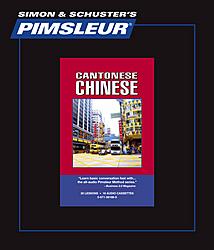Fri 4 Aug 2006
My confidence crushed - Pimsleur Cantonese
Posted by 馬先生 under Learning
[12] Comments
 Costing $295USD on Amazon, Pimsleur Cantonese comprises of 30 x 30min lessons teaching Cantonese solely through listening, repeating then anticipating responses.
Costing $295USD on Amazon, Pimsleur Cantonese comprises of 30 x 30min lessons teaching Cantonese solely through listening, repeating then anticipating responses.
The course claims upon completion of Pimsleur Comprehensive Level I Program (30 lessons), you will have achieved spoken-language communication skills at an Intermediate-Low Level including the ability to participate in simple, direct conversations, etc.
Here is an extract from lesson 17 (50seconds):
My Experience:
When I started to learn Cantonese, I listened to 30 lessons (each 3 times per day for a month - I could understand 100% of the course), I truly believed that I gained an Intermediate-Low level speaking ability which was exaggerated on nearly every website on the Internet.
The course is good in theory but in reality it caused my Cantonese confidence to be quickly crushed. Having learnt the 100 words that Pimsleur teached surely cannot classify my level as Intermediate-Low at that point of time.
Attempting to say something lead to abruptly stopping on every 2nd word with “What did you say? I don’t understand”. This rendered every native speaker to quickly switch to English. Even parroting one of the pre-defined sentences to a native speaker always caused me to panic when I heard a response that varied to one that was taught.
I now realise that having a conversation that won’t lead to “what does this mean?” in every response; requires thousands of words in your spoken vocabulary. There is nothing magical about a quick-fix course teaching 100 words over a 1 month period costing $3 per word.
I can honestly say don’t expect any miracles or have any functional ability from Pimsleur Cantonese.



